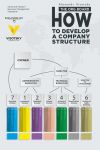
Автор книги: Виктор Миловидов
Жанр: Иностранные языки, Наука и Образование
Возрастные ограничения: +12
сообщить о неприемлемом содержимом
Текущая страница: 5 (всего у книги 16 страниц)
Training Programs for Employees
Special High Intensity Training (S.H.I.T.)
Memorandum
To: All Employees
From: Communications Services
Subject: Special High Intensity Training
In order to assure that we continue to produce the highest quality work possible, it will be our policy to keep all employees well-trained through our Special High Intensity Training (S.H.I.T.). We are giving our employees more S.H.I.T. than any other office in town.
If you feel you do not receive your share of S.H.I.T. on the job, please see your supervisor. You will be placed at the top of the S.H.I.T. list for special attention.
All of our supervisors are particularly qualified to see that you get all the S.H.I.T. you can handle at your own speed.
If you think that you have a thorough understanding of the basic S.H.I.T. program, you may wish to participate in Management Of Related Education (M.O.R.E. S.H.I.T.).
If you consider yourself to be trained enough already, you may be interested in helping us train others. We can add you to our Basic Understanding Lecture List (B.U.L.L. S.H.I.T.).
Some of you already display aptitudes that would easily allow you to enter the Director of Intensity Program (D.I.P. S.H.I.T.). Those who do not qualify for this position but are still interested will certainly be referred to the Director Under Management Bureau (D.U.M.B. S.H.I.T.). Those individuals who do not meet the requirements of The Bureau must first complete Special Training Under Personal Individual Discretion, Special High Intensity Training (S.T.U.P.I.D. S.H.I.T.).
If you have any further questions, please address them to our Head Of Training, Special High Intensity Training (H.O.T. S.H.I.T.) program.
Thank You.
Boss in General
Special High Intensity Training
(B.I.G.S.H.I.T)
Copy to: Complete Registered Organized Computerized Knowledge Originating Firsthand; Special High Intensity Training division (CROCK-OF-SHIT).
Слова и выражения:
aptitude – склонности, способности
assure – уверить(ся), удостоверить(ся)
basic – базовый, основной
bull – сленг ерунда, чепуха, несуразица
complete – полный, завершенный; завершать
consider – полагать, оценивать, считать
crock – сленг глупость, бессмыслица
dip – сленг (от dipsomaniac) страдающий алкоголизмом
discretion – усмотрение
display – показывать, демонстрировать
dumb – глупый, тупой
handle – управляться (с чем-либо)
intensity – интенсивность; интенсивный, напряженный
memorandum – памятная записка, меморандум
participate – участвовать, принимать участие
refer – относить(ся)
related – смежные, имеющие отношение, дополнительные
shit – груб., сленг бессмыслица, глупость
subject – тема, предмет
supervisor – руководитель
thorough – полный, исчерпывающий, тщательный
wish – желание; желать
in order (to) – для того, чтобы
highest quality work possible – работа высшего (из всех возможных) уровня качества
keep well-trained – поддерживать высокий уровень квалификации
special attention – особое внимание
at your speed – на присущей вам скорости
qualify for position – соответствовать квалификационным требованиям должности
meet the requirements – соответствовать требованиям
Exercise 4
Answer the questions:
1. Why is Special High Intensity Training (S.H.I.T.) program introduced?
2. What does an employee have to do if he or she does not receive his or her share of S.H.I.T. on the job?
3. What program is available for those who think they have a thorough understanding of the basic S.H.I.T. program?
4. What program is open for those who show aptitudes adequate for a Director's position?
5. Where should employees address if they have any further questions?
More Employment Opportunities
1
Employer: In this job we need someone who is responsible.
Applicant: I'm the one you want. On my last job, every time anything went wrong, they said I was responsible.
2
Employer: Young man, do you think you can handle a variety of work?
Applicant: I ought to be able to. I've had ten different jobs in four months.
3
The Human Resources Officer: And what starting salary are you looking for?
Young applicant (fresh out of Business School): In the neighborhood of $125,000 a year, depending on the benefits package.
HRO: Well, what would you say to a package of 5-weeks vacation, 14 paid holidays, full medical and dental, company matching retirement fund to 50 % of salary, and a company car leased every two years – say, a red Corvette?
Applicant: Wow! Are you kidding?
HRO: Yeah, but you started it.
4
Personnel manager: What is the meaning of this? When you applied for the job six weeks ago, you told us you had had 5 years' experience. Now we discover this is the first job you've ever had.
Employee: Well, in your ad you said you wanted somebody with imagination.
5
The navy psychiatrist (interviewing a potential sailor): Now, let's check on your response to trouble. What would you do if you looked out of that window right now and saw a battleship coming down the street?
The baby sailor: I'd grab a torpedo and sink it.
Psychiatrist: Where would you get the torpedo?
Sailor: The same place you got your battleship!
Слова и выражения:
ad – объявление
battleship – военный корабль
benefit – выгода; здесь: премиальные, дополнительные блага, предоставляемые компанией своим работникам
grab – хватать
handle – управляться
human – человеческие
lease – брать в лизинг
navy – военно-морские силы
package – пакет, набор
potential – потенциальный
psychiatrist – психиатр
resources – ресурсы
response – реакция, ответ
responsible – ответственный
sailor – моряк
sink – топить
torpedo – торпеда
variety – разнообразие
go wrong – «идти не так»
fresh out of – «свеженький из»
In the neighborhood of… – В районе…
benefits package – набор дополнительных благ и выплат
full medical and dental – полная оплата общемедицинской и стоматологической помощи
company matching retirement fund to 50 % of salary – предоставляемая компанией прибавка к пенсии, составляющая 50 % от оклада.
baby sailor – разг. будущий моряк
Exercise 5
Answer the questions:
1. What was the applicant responsible for on his last job?
2. What made the applicant think that he would be able to handle a variety of work?
3. What starting salary was the young applicant (fresh from the Business School) thinking of?
4. What benefits package was he offered?
5. Who was kidding?
6. What did the young employee imagine?
7. Where would the doctor get the battleship?
8. What would you do if you looked out of the window and saw a battleship coming down the street?
Equal Opportunities for All
A business was looking for office help. They put a sign in the window, stating the following:
«Help Wanted! Must be able to type, have computer skills, and be bilingual. We are an Equal Opportunity Employer».
A dog trotted up to the window, saw the sign and went inside. He looked at the receptionist and wagged his tail, then walked over to the sign, looked at it and whined a bit.
Getting the idea, the receptionist got the office manager. The office manager looked at the dog and was surprised, to say the least. However, the dog looked determined, so the manager led him into the office. Inside, the dog jumped up on a chair and stared at the manager. The manager said, «I can't hire you. The sign says you have to be able to type.»
The dog jumped down, went to the typewriter and proceeded to type out a perfect letter. He took out the page and trotted over to the manager and gave it to him, then jumped back up on the chair. The manager was stunned, but then told the dog,
«The sign also says you have to be good with a computer.»
The dog jumped down again and went to the computer. He proceeded to enter and execute a perfect spreadsheet that worked flawlessly the first time.
By this time, the manager was totally dumb-founded! He looked at the dog and said, «I realize that you are a very intelligent dog and have some interesting abilities. However, I still can't give you the job.»
The dog jumped down and went over to a copy of the sign and put his paw on the sentence about being an Equal Opportunity Employer.
The manager said, «Yes, but the sign also says that you have to be bilingual.»
The dog looked at that manager calmly and said, «Meow!»
Слова и выражения:
ability – способность
bilingual – двуязычный
calm – спокойный
determined – целеустремленный
equal – равный, равноправный
execute – выполнять, исполнять
flawless – безупречный
hire – нанимать на работу
intelligent – умный, сообразительный
paw – лапка
proceed – приступать
к делу, продолжать
spreadsheet – таблица
stun – удивлять, изумлять
trot – бегать (рысью)
wag – махать хвостом
whine – скулить
office help – работа в офисе
a bit – немного, самую малость
to say the least – самое меньшее
dumb-founded – ошеломленный
Meow! – Мяу!
Exercise 6
Answer the questions:
1. What sort of help was the business looking for?
2. What capabilities and skills did an applicant have to demonstrate?
3. What did the dog do when he entered the office?
4. Why did the manager let him in?
5. What did the dog type?
6. What did he work out at the computer?
7. What was the dog's second language?
More Stories about Applicants
1
An applicant was filling out a job application. When he came to the question, «Have you ever been arrested?» he answered, «No.»
The next question, intended for people who had answered in the affirmative to the last one, was «Why?» The applicant answered it anyway: «Never got caught.»
2
In a job interview for policemen the applicants were shown a profile picture of a man, and the interviewer said, «The job that you're applying for requires powers of observation. Make one observation about this man.»
The first applicant entered and said, «This man has just one ear.»
«Get out!!» screamed the interviewer.
The second applicant entered and said, «This man has one ear.»
«Get out!!» screamed the interviewer again.
Then the third applicant got up to go in for his interview.
The first two guys were out there and they told him, «The guy that's giving the interview doesn't like to hear that the man in the picture has one ear.»
«Thanks for the tip,» said the third applicant.
So the third applicant entered, stared at the picture for a while, and finally said, «This man wears contact lenses.»
The interviewer was impressed. «Excellent observation,» he said. «Tell me, how could you tell?»
And the guy said, «Well, as this man has just one ear, how could he wear glasses?»
3
A man applied for a job as an industrial spy. Together with several other applicants, he was given a sealed envelope and told to take it to the fourth floor.
As soon as the man was alone, he stepped into an empty hallway and opened the envelope. Inside, a message read: «You're our kind of person. Report to the fifth floor Personnel Office.»
4
A man applied to a finance agency for a job, but he had no experience. He was so intense that the manager gave him a tough account with the promise that if he collected it, he'd get the job.
Two hours later, the applicant came back with the entire amount.
«Amazing!» the manager said. «How did you do it?»
«Easy,» the applicant replied. «I told him if he didn't pay up, I'd tell all his other creditors he paid us.»
5
"Where did you receive your
training?"
«Yale.»
«Good, and what's your name?»
«Yim Yohnson.»
6
When you hire people that are smarter than you are, you prove you are smarter than they are.
Слова и выражения:
affirmative – утвердительный
amazing – изумительный; изумительно
arrest – арестовывать
collect – собирать, забирать, инкассировать, получать деньги по долговому обязательству
contact – контактный
creditor – кредитор
envelope – конверт
hallway – коридор
industrial – промышленный
intend – намереваться
intense – интенсивный, настойчивый
jale – тюремная камера
lense – линза
observation – наблюдение
profile – профиль
seal – печать; запечатывать
smart – разг. умный
spy – шпион
tip – разг. совет
tough – трудный, жесткий
in the affirmative – утвердительно
Get out! – разг. Убирайся!
Yale – Йельский университет, один из наиболее престижных в США.
finance agency – финансовое агентство
tough account – «крутой» счет (здесь: счет, по которому трудно добиться возврата средств)
Exercise 7
Answer the questions:
1. Why hasn't the applicant ever been arrested?
2. What positions did the men at the police station apply to?
3. What power were they supposed to demonstrate?
4. How many ears did the man in the picture have, in the first two applicants' opinion?
5. Why was the applicant to the position of an industrial spy employed?
6. How did the applicant to the finance agency get the job?
7. Where did the man named Jim Johnson really get his training?
8. Will you hire people that are smarter than you are, and why?
Work Gives No Satisfaction?
When you have an «I hate my job» day, try this.
On your way home from work, stop at the pharmacy, go to the thermometers section and purchase a rectal thermometer made by «Best Thermo». Be very sure you get this brand.
When you get home, lock your doors, draw the drapes, and disconnect the phone so you will not be disturbed during your therapy. Change to very comfortable clothing, such as a sweat suit and lie down on your bed. Open the package and remove the thermometer. Carefully place it on the bedside table so that it will not become chipped or broken.
Take out the material that comes with the thermometer and read it. You will notice that in small print there is a statement: «Every rectal thermometer made by Best Thermo is personally tested.» Now close your eyes and repeat out loud five times: «I am so glad I do not work for quality control at the Best Thermo Company.»
We guarantee you will feel much more happy with your present occupation.
Labour Force and Unemployment. The Results of a Government Study
For the past three years, the government has worked hard and spent many tax dollars to find the approval ratings for unemployment.
They have concluded that a 7 % unemployment level is acceptable to 93 % of the working population.
Слова и выражения:
acceptable – приемлемый
brand – марка, торговое имя
chip – раскалывать, разбивать
conclude – заключать
disconnect – разъединять, отсоединять
disturb – беспокоить
drapes – занавески, шторы
material – здесь: инструкция по применению
occupation – занятие, место работы
pharmacy – аптека
guarantee – гарантия; гарантировать
statement – заявление, утверждение
sweat suit– свитер
therapy – терапия
thermometer – термометр
"I hate my job" day – день, когда вы ненавидите свою работу
rectal thermometer – ректальный термометр
small print – маленькие буквы
personally tested – прошедший индивидуальное тестирование
quality control – служба контроля за качеством
"Best Thermo" Company – Компания «Лучшие термометры»
approval ratings – показатели, необходимые для одобрения политики
Exercise 8
Answer the questions:
1. Have you ever had a day «I hate my job»?
2. Where can we by a thermometer?
3. What brand of a thermometer do we have to buy to feel eventually how happy we are?
4. What do we have to do on coming home with a thermometer in our hands?
5. What statement should we carefully read, and what does this statement mean in plain words?
6. Would you want to work for quality control of the «Best Thermo» Company?
7. How long did it take the government to work out the approval ratings for unemployment?
8. What unemployment level is acceptable to the working segment of the working population?
Unemployment
Unemployment statistics are of major concern for most economists. But, actually, not all people out of work may be classed as unemployed. If someone reports that he is both out of work and seeking employment, he is counted as an unemployed member of the labour force.
The jobless who have chosen not to continue looking for work are considered out of the labour force and therefore are not counted as unemployed. Thus, the unemployment rate in many countries includes only people within the labour force who are out of work.
Not all unemployment is the same. Unemployment can be long– or short-term. It can be frictional, meaning someone is between jobs. Or it may be structural, as when someone's skills are no longer demanded because of a change in technology or an industry downturn.
There are two causes of recorded long-term unemployment in the developed countries. Those are welfare payments and unemployment insurance. These government assistance programs contribute to long-term unemployment in two ways.
First, government assistance increases the measure of unemployment by prompting people who are not working to claim that they are looking for work even when they are not. The work-registration requirement for welfare recipients, for example, compels people who otherwise would not be considered part of the labour force to register as if they were a part of it. This requirement effectively increases the measure of unemployed in the labour force even though these people are better described as unemployed – that is, not actively looking for work.
Similarly, unemployment insurance increases the measure of unemployment by inducing people to say that they are job hunting in order to collect benefits. Thus government assistance programs contribute to long-term unemployment by providing an incentive, and the means, not to work. Each unemployed person has a «reservation wage» – the minimum wage he or she insists on getting before accepting a job. Unemployment insurance and other social assistance programs increase that reservation wage, causing an unemployed person to remain unemployed longer.
Consider, for example, an unemployed person who is used to making $10.00 an hour. On unemployment insurance this person receives about 55 percent of normal earnings, or $5.50 per lost work hour. If that person is in a 15 percent federal tax bracket, and a 3 percent state tax bracket, he or she pays $0.99 in taxes per hour not worked and nets $4.51 per hour after taxes as compensation for not working. If that person took a job that paid $10.00 per hour, governments would take 18 percent for income taxes and 7.5 percent for Social Security taxes, netting him or her $7.45 per hour of work. Comparing the two payments, this person may decide that a day of leisure is worth more than the extra $2.94 an hour the job would pay. If so, this means that the unemployment insurance raises the person's reservation wage to above $10.00 per hour.
Слова и выражения:
bracket – категория, налоговая ниша
claim – требовать, предъявлять требования, заявлять
compel – принуждать, понуждать
concern – озабоченность
frictional – фрикционная
induce – понуждать, принуждать
leisure – отдых, досуг
net – получать «чистыми» (после налогообложения)
prompt – подсказывать
recipient – получатель
report – сообщать, извещать, докладывать
structural – структурная
welfare – благосостояние
major concern – главная причина озабоченности
be counted as – считаться (в качестве)
people within the labour force – люди, включенные в число рабочей силы, трудовых ресурсов
industry downturn – спад в промышленности
welfare payment – пособие, направленное на повышение уровня благосостояния
assistance programs – программы помощи
work-registration requirement – регистрационные требования для безработных
job hunting – поиски работы, «охота на работу»
collect benefits – получать блага
reservation wage – резервационная зарплата
tax bracket – категория налогоплательщиков
Exercise 9
Answer the questions:
1. Why are unemployment statistics of major concern for most economists?
2. What people does the unemployment rate in many countries include?
3. What types of unemployment can there be?
4. What are the two causes of long-term unemployment in the developed countries?
5. What does government assistance induce unemployed to do?
6. What is the difference between the unemployed and the unemployed?
7. How does unemployment insurance change the measure of unemployment?
8. What is a reservation wage?
9. How much does an unemployed receive relative to what he would receive while working?
10. Does unemployment in developed countries create incentives to work?
Productivity
Productivity is the basic criterion of an economy's health. When productivity is rising, living standards and the quality of life are rising as well. The rate of productivity growth is the most important thing for the economic well-being of a country.
The most familiar definition of labour productivity is output divided by the number of workers or, more usually, by the number of hours worked. Output can be expressed in tons of iron or numbers of jeans' pairs, but usually it is some very broad aggregate like gross domestic product.
Other ways of defining productivity take into consideration other inputs, such as managerial skill, innovation and technology, organization.
While such factors of production as land or population are always limited, the prospects for increasing productivity are boundless. Studies of the US economy show that half of the growth in labour productivity in the postwar years there has been due not to the use of added capital, but to making better use of these inputs.
There are only three ways by which a country can raise the level of consumption, and, correspondingly, of its well-being. First, a larger number of citizens can go to work. Second, a country can borrow from abroad. Third, the country can increase productivity of labour. Whereas there are limits on what portion of the population can join the home labour force and on how much foreigners will lend, the potential for boosting productivity are limitless.
The number one country in the world at any given time has always been the productivity leader. It was northern Italy from the thirteenth to the sixteenth centuries, the Dutch republic in the seventeenth and early eighteenth, Britain in the late eighteenth and most of the nineteenth, and the United States for the entire twentieth century.

Слова и выражения:
aggregate – совокупность; совокупный
boundless – безграничный
criterion – критерий
define – определять
definition – определение
entire – полный, целый
familiar – известный, знакомый
portion – часть
postwar – послевоенный
productivity – производительность (труда)
whereas – в то время как
well-being – благосостояние
divided by – разделенный (на)
managerial skill – мастерство управления
due to – благодаря (чему-либо), из-за (чего-либо)
added capital – добавленный капитал
the Dutch republic – Голландская республика
Exercise 10
Answer the questions:
1. Why is the rate of productivity growth considered the most important thing for the economic well-being of a country?
2. What is the most familiar definition of labour productivity?
3. In what terms can output be expressed?
4. What other inputs apart from hours worked, can be taken into consideration in talking about productivity?
5. How much of the growth in labour productivity in the postwar years in the USA could be accounted for by the added capital.
6. By what means can a country raise its level of consumption?
7. Which is preferable in the long run?
8. What makes a country the number one country in the world?
9. What countries were the leaders in the world in the past, and when?
Правообладателям!
Это произведение, предположительно, находится в статусе 'public domain'. Если это не так и размещение материала нарушает чьи-либо права, то сообщите нам об этом.








































